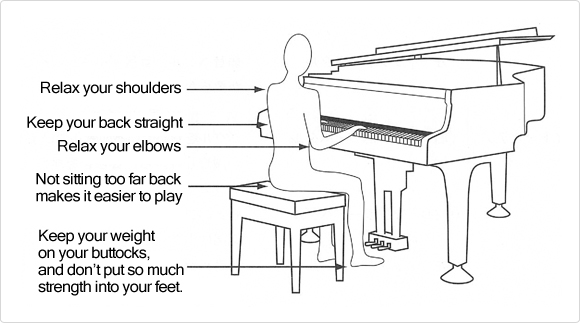Learning piano as an adult can feel intimidating—but it’s one of the most rewarding skills you can develop, regardless of age. Whether you're revisiting an old passion or starting from scratch, adult learners often have advantages like stronger self-discipline, clear goals, and a deeper appreciation for music. Here’s how you can successfully learn piano as an adult:
1. Set Realistic and Personal Goals
Start by asking yourself why you want to learn piano. Is it to play your favorite songs? To relax after work? To read sheet music or even compose your own music? Defining your motivation will help shape your learning path and keep you focused when progress feels slow.
Examples of realistic goals:
-
Learn to play one new song per month
-
Practice 30 minutes a day, 5 days a week
-
Master basic chords and scales within 3 months
2. Choose the Right Instrument
You don’t need a grand piano to get started. A quality digital piano like the Yamaha P-45 is affordable, has a realistic feel thanks to weighted keys, and takes up minimal space—ideal for adult learners at home.
Features to look for:
-
88 weighted keys (Graded Hammer Standard if possible)
An 88-key keyboard matches the full range of a traditional acoustic piano, which is essential if you want to develop proper technique and hand coordination from the beginning. Using a smaller keyboard might limit your ability to play more advanced pieces later on.
Why weighted keys matter:
Weighted keys mimic the resistance and feel of a real acoustic piano. This helps you:-
Build proper finger strength
-
Develop dynamic control (playing louder or softer based on touch)
-
Easily transition to an acoustic piano if you ever decide to play one
-
Other Features to look for:
-
Touch sensitivity
-
Headphone jack for quiet practice
-
USB or MIDI connectivity for learning apps
3. Start with the Basics

Even if you’re eager to jump into your favorite song, make sure you understand the fundamentals:
-
Finger positioning
- Posture
-
Note reading (treble and bass clefs)
-
Basic rhythm and timing
-
Simple scales and chords
You can learn these through online courses, private lessons, or even self-paced apps like Simply Piano, Flowkey, or Yousician.
4. Use Technology to Your Advantage
One benefit of learning piano today is access to a wide range of digital tools:
-
Apps that provide interactive lessons and feedback. Here's some apps we'd recommend!
Flowkey - (iOS, Android, PC, Mac) Pros: Very user-friendly, great song library.
Simply Piano (by JoyTunes) - (iOS, Android) Pros: Great for structured daily practice.
https://www.joytunes.com/simply-pianoYousician - (iOS, Android, Mac, PC) Pros: Fun, game-like interface.
https://www.yousician.com -
YouTube tutorials from experienced teachers. Youtube is a great way to start learning and best of all it's free. Heres a small list of channels we'd recommend;
Piano Video Lessons (by Lisa) Link: https://www.youtube.com/@PianoVideoLessons
Pianote Link: https://www.youtube.com/@Pianoteofficial
Michael New Link: https://www.youtube.com/@MichaelNew -
Backing tracks and metronomes for practice
-
MIDI files and software to record and review your performance
Combining these tools with a regular routine can accelerate your learning dramatically.
5. Create a Practice Routine That Fits Your Life
Consistency is more important than intensity. Instead of long, infrequent practice sessions, aim for shorter, more frequent ones:
-
20–30 minutes per day is ideal for beginners
-
Use a timer or calendar to keep track
-
Warm up with finger exercises or scales
-
End each session with something fun (like playing a favorite tune)
6. Stay Patient and Celebrate Small Wins
Learning piano is a marathon, not a sprint. As an adult, life gets busy, and progress may feel slow at times. Celebrate small milestones like:
-
Playing a song hands together
-
Reading sheet music without help
-
Memorizing a chord progression
Every little achievement builds confidence and keeps you moving forward.
7. Consider Taking Lessons
If you’re looking for structure and accountability, a piano teacher can be a huge help. Many offer in-person or online lessons tailored to your pace and style. Adult learners often prefer teachers who are flexible, patient, and experienced with beginners.
Final Thoughts
Learning piano as an adult is not only possible—it can be life-changing. Music can reduce stress, improve memory, and provide a creative outlet. With the right tools, a positive mindset, and consistent practice, you can unlock the joy of playing music at any age.
Looking for a great beginner piano?
Check out the Yamaha P-45—a perfect balance of affordability, sound quality, and realistic feel. Visit our store for more details and special offers!

